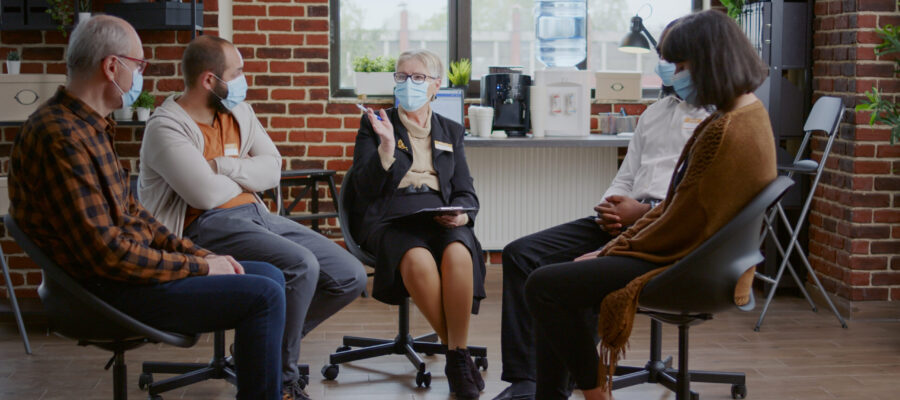Rehabilitation can be a life-changing experience for individuals dealing with addiction or other personal issues. To get the most out of your time in rehab, it’s essential to approach it with the right mindset and focus on your recovery. In this article, we will discuss four key tips to help you maximize the benefits of your stay in rehab and set the foundation for a successful, long-lasting recovery.
Set Realistic Goals and Expectations

Before entering rehab, it’s crucial to establish attainable goals and expectations for yourself. By doing so, you can manage your progress and maintain a sense of purpose throughout your recovery journey. Recognize that rehab is not a quick fix or a one-size-fits-all solution. Recovery is an ongoing process that requires commitment, patience, and resilience.
Work closely with your therapist or counselor to create individualized objectives based on your specific needs, strengths, and weaknesses. Be prepared to adjust your goals as you progress through treatment, as it’s normal for priorities to shift as you gain new insights and develop new coping skills. Remember, setbacks are an expected part of the recovery process – use them as learning experiences to refine your goals and strategies.
It’s also important to maintain realistic expectations about life after rehab. Building a support network of understanding friends, family members, and professionals is critical for sustaining your recovery as you navigate the challenges of daily life. Transitioning back to life outside of rehab may require adjustments in routines, relationships, and environments to avoid triggers and promote healthier choices. Keep in mind that organizations like Reflections Rehab (https://livingatreflections.com/) offer support services and resources for individuals transitioning from rehab to daily life.
Embrace a Holistic Approach to Recovery
Physical, emotional, and mental well-being are all interconnected aspects of a person’s overall health. Addressing all of these components is crucial for a well-rounded recovery. Rehab programs usually incorporate various therapeutic modalities, such as individual and group therapy, medication management, and complementary therapies like yoga, meditation, and art therapy.
Engaging in these diverse treatment approaches allows you to explore different methods for healing and learning essential self-care strategies, combating both addiction and any dual diagnosis you may have. Actively participate in group therapy sessions, as they provide an invaluable opportunity for peer support and insight into the experiences of others facing similar challenges. Complementary therapies can also offer outlets for self-expression and emotional release, promoting relaxation and improved mental health.
Eating a balanced diet, getting regular exercise, and maintaining a consistent sleep schedule are critical components of a healthy lifestyle in recovery. Work with nutritionists, personal trainers, and other health professionals to create a balanced routine that nurtures your physical well-being while also supporting your emotional and mental health.
Develop New Coping Skills and Strategies

Replacing old, destructive habits with new, healthy ones is a critical aspect of a successful recovery. Developing new coping skills and strategies will equip you with the tools necessary to handle stressors and triggers without resorting to substance use or other harmful behaviors. During rehab, you will have access to the resources and support needed to develop these skills.
Therapy and counseling sessions provide opportunities to learn and practice various coping techniques, such as deep breathing, visualization, journaling, and meditation. Experiment with different strategies to discover what works best for you, and be patient with yourself as you develop these new skills. Building a strong foundation of healthy coping strategies can improve your overall quality of life and reduce the likelihood of relapse.
As you learn new coping mechanisms, it’s essential to remove or minimize exposure to potential triggers in your environment. This may involve distancing yourself from certain people or situations or making a conscious effort to avoid places and items associated with past substance use. Creating a healthy, supportive environment is key to maintaining your recovery and continued personal growth.
Overall, the key to making the most of your time in rehab is to approach the experience with a positive mindset, open communication, and a willingness to grow. By setting realistic goals, embracing a holistic approach, developing new coping skills, and committing to your long-term success, you are creating a strong foundation for lasting recovery and personal growth.
